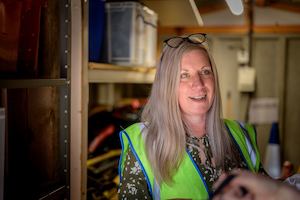Unemployment and employment support

Making employment and skills support work for over 50s.
Traditional employment support has not served people in their 50s and 60s as well as those in younger age groups. People over 50 are more likely to become long-term unemployed after falling out of work, and workers made redundant over 50 are three times less likely to return to work within three months than those younger than them. Often those who want, or need to work, don’t have access to the necessary support to help them find and sustain good employment.
There has been an increase in the number of people over 50 withdrawing from the workforce, citing various reasons such as health constraints, caregiving responsibilities and a lack of suitable employment. The pandemic exacerbated this issue, with statistics showing that a third of individuals made redundant during this time were aged over 50. There are also large inequalities in terms of who leaves the labour market and how, with those on lower incomes more likely to face greater challenges.
We’re testing a number of ways to provide more effective employment and skills support to people aged 50 and over. This includes work with commissioners; developing resources and training for providers; testing better support for those facing redundancy and looking at how tailored support can help those not engaging with existing services.
We want to share our insights and continue to build an evidence base of good practice to better shape services and experiences of support.








